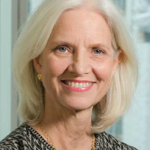What is the pain puzzle? “It is a bio-psycho social model of pain that is accepted in the field of rheumatology,” according to Michael Rapoff, PhD, professor of pediatrics at the University of Kansas Medical Center in Kansas City and the highlighted speaker for the ARHP audioconference on April 17.
“The pain puzzle describes pain as a physiological and psychological experience. The focal consideration is that health professionals are interested in helping patients relieve their suffering and improve their quality of life. Chronic pain that is unrelenting or episodic can hinder one’s quality of life and interfere with social activities, especially those of a child,” says Dr. Rapoff.
He suggests that, “Chronic pain in children is one of the most ignored and under-treated symptoms of disease.” During the AHRP rheumatology audioconference, Dr. Rapoff will summarize the extent and consequences of pain associated with juvenile arthritis, describe the pain puzzle model, and discuss implications of the model for treating pain in children and adolescents with juvenile arthritis.
The pain puzzle involves several components, including how arthritis causes pain in children, the neural physiological aspects of pain, and how emotions, thoughts, and behaviors can influence the pain children experience. Dr. Rapoff explains that the nociceptive aspect is currently handled by medication, but does not necessarily influence the cognitive, emotional, and behavioral part of pain. “We teach children coping strategies to deal with their pain. For example, relaxation training can have a positive influence on emotions, behaviors, and thoughts,” he says.
Children today are more computer savvy than ever. Innovative advances are viable for this generation of point-and-clickers. Dr. Rapoff and his team, called Jointstrong, are developing cost-effective, cognitive behavioral approaches to pain management for children with arthritis and other chronic pain conditions. They are creating CD-ROMs and Web-based programs that will give children access to comprehensive programming that helps them develop coping strategies and manage their pain.
To sign up for this ARHP audioconference, visit www.rheumatology.org/arhp or contact Sharon Ross at (404)633-3777, ext. 802.
Nominate a Colleague for an ACR Award
Each year, the ACR recognizes outstanding contributions to the field of rheumatology through its awards program. If you have a colleague or mentor who fits the description of one of the awards listed below or a Masters designation, please nominate that individual.
“Having admitted truthfully that receiving the ACR Presidential Gold Medal in 2007 was the high point of my professional career, I can also truthfully add that the process of nominating deserving colleagues for ACR awards such as Master and Distinguished Rheumatologist is extremely rewarding,” says Edward D. Harris, Jr., MD. “As you collect CVs and other information about individuals whom you think you know well, you are surprised and pleased to learn much more about them and their accomplishments. It follows that if they win or are not chosen, you have enlarged your friendship with them and respect for them.”
The process of nominating deserving colleagues for ACR awards such as Master and Distinguished Rheumatologist is extremely rewarding.
—Edward D. Harris, Jr., MD



